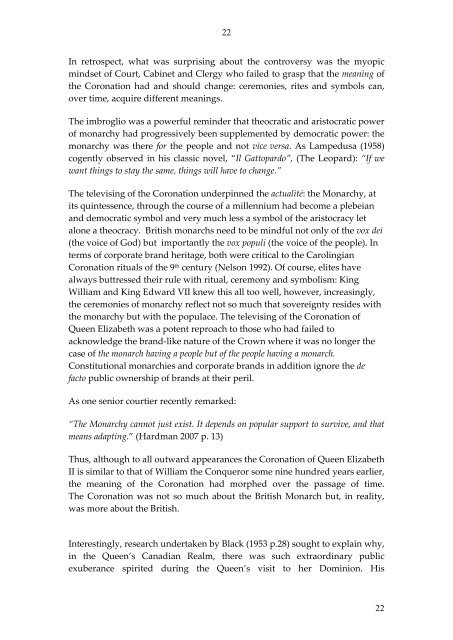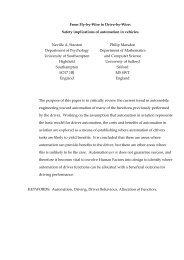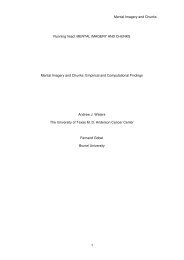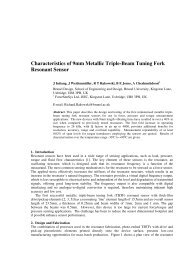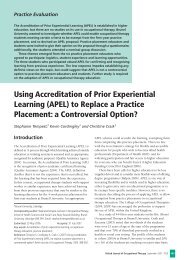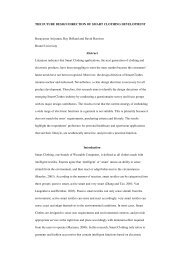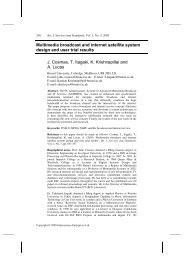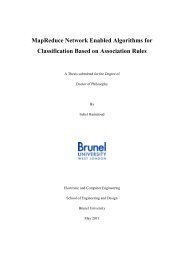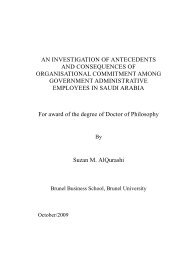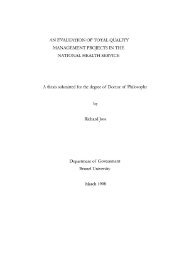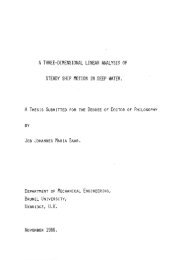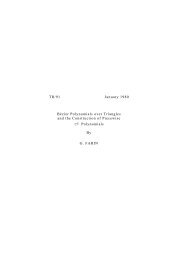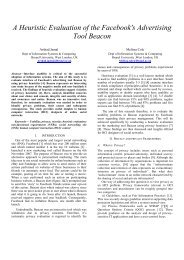insights from the british monarchy - BURA - Brunel University
insights from the british monarchy - BURA - Brunel University
insights from the british monarchy - BURA - Brunel University
Create successful ePaper yourself
Turn your PDF publications into a flip-book with our unique Google optimized e-Paper software.
22<br />
In retrospect, what was surprising about <strong>the</strong> controversy was <strong>the</strong> myopic<br />
mindset of Court, Cabinet and Clergy who failed to grasp that <strong>the</strong> meaning of<br />
<strong>the</strong> Coronation had and should change: ceremonies, rites and symbols can,<br />
over time, acquire different meanings.<br />
The imbroglio was a powerful reminder that <strong>the</strong>ocratic and aristocratic power<br />
of <strong>monarchy</strong> had progressively been supplemented by democratic power: <strong>the</strong><br />
<strong>monarchy</strong> was <strong>the</strong>re for <strong>the</strong> people and not vice versa. As Lampedusa (1958)<br />
cogently observed in his classic novel, ‚Il Gattopardo‛, (The Leopard): ‚If we<br />
want things to stay <strong>the</strong> same, things will have to change.‛<br />
The televising of <strong>the</strong> Coronation underpinned <strong>the</strong> actualité: <strong>the</strong> Monarchy, at<br />
its quintessence, through <strong>the</strong> course of a millennium had become a plebeian<br />
and democratic symbol and very much less a symbol of <strong>the</strong> aristocracy let<br />
alone a <strong>the</strong>ocracy. British monarchs need to be mindful not only of <strong>the</strong> vox dei<br />
(<strong>the</strong> voice of God) but importantly <strong>the</strong> vox populi (<strong>the</strong> voice of <strong>the</strong> people). In<br />
terms of corporate brand heritage, both were critical to <strong>the</strong> Carolingian<br />
Coronation rituals of <strong>the</strong> 9 th century (Nelson 1992). Of course, elites have<br />
always buttressed <strong>the</strong>ir rule with ritual, ceremony and symbolism: King<br />
William and King Edward VII knew this all too well, however, increasingly,<br />
<strong>the</strong> ceremonies of <strong>monarchy</strong> reflect not so much that sovereignty resides with<br />
<strong>the</strong> <strong>monarchy</strong> but with <strong>the</strong> populace. The televising of <strong>the</strong> Coronation of<br />
Queen Elizabeth was a potent reproach to those who had failed to<br />
acknowledge <strong>the</strong> brand-like nature of <strong>the</strong> Crown where it was no longer <strong>the</strong><br />
case of <strong>the</strong> monarch having a people but of <strong>the</strong> people having a monarch.<br />
Constitutional monarchies and corporate brands in addition ignore <strong>the</strong> de<br />
facto public ownership of brands at <strong>the</strong>ir peril.<br />
As one senior courtier recently remarked:<br />
‚The Monarchy cannot just exist. It depends on popular support to survive, and that<br />
means adapting.‛ (Hardman 2007 p. 13)<br />
Thus, although to all outward appearances <strong>the</strong> Coronation of Queen Elizabeth<br />
II is similar to that of William <strong>the</strong> Conqueror some nine hundred years earlier,<br />
<strong>the</strong> meaning of <strong>the</strong> Coronation had morphed over <strong>the</strong> passage of time.<br />
The Coronation was not so much about <strong>the</strong> British Monarch but, in reality,<br />
was more about <strong>the</strong> British.<br />
Interestingly, research undertaken by Black (1953 p.28) sought to explain why,<br />
in <strong>the</strong> Queen’s Canadian Realm, <strong>the</strong>re was such extraordinary public<br />
exuberance spirited during <strong>the</strong> Queen’s visit to her Dominion. His<br />
22


